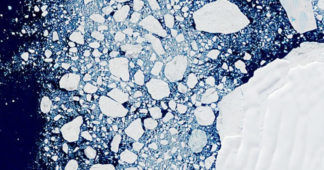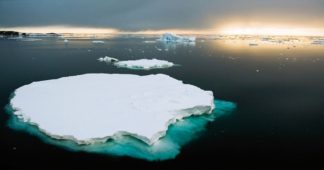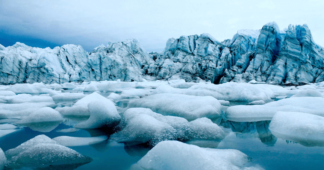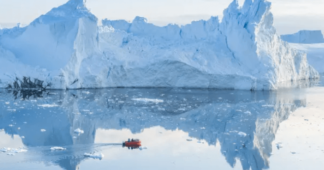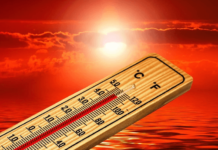By
One of the coldest regions on the planet appears to be losing its ability to retain the frigid climate necessary to regulate temperatures in the rest of the world.
Scientists have determined that in the last 10 to 20 years of steady global warming, the ocean has played an “important role” in the evolution of glaciers, Eric Rignot, professor of system science at the University of California, Irvine, and author of the study, told ABC News.
MORE: Antarctic sea ice has reached a record low for the year, researchers say
Melting at the interface between ice sheets and the ocean in the Arctic is much more extensive than previously estimated, according to a study published Monday in Proceedings of the National Academy of Sciences.
What is happening at the grounding line — the junction between a grounded ice sheet and the ocean — led the researchers to discover much more melting that previously thought at Petermann Glacier in Greenland, according to the paper.
However, the researchers found that the seawater is “regularly’ intruding beneath the glacier for a sizeable distance that was initially assumed to be “very small,” Rignot said.
“What we found is that it extends over kilometers,” he said. “Not just a few meters, or a few 100 meters, but kilometers.”
Researchers found that the grounding line of the Petermann Glacier migrates with the tidal cycle over distances of 2 to 6 kilometers — or up to 3.7 miles — with the largest retreats occurring along preexisting subglacial outlet channels, according to the study.
Unlike previous models, the highest ice sheet melt rates recorded were within the zone of grounding line migration, which was estimated to be around 60–100 meters of ice melt per year — or up to 328 feet per year.
As ocean waters are getting warmer, they will affect a very large part of the measure as opposed to a “tiny, tiny” bit, showing how much more sensitive the glacier is from ocean activity, Rignot said.
“Suddenly, the warmer ocean water will attack the glacier of a much larger area, because the tidal cycle is intrusive for very long distances.
The researchers analyzed a time series of ice sheet motion and surface elevation data derived from satellite observations to estimate the grounding line migration and basal melt rates for glaciers since 1992.
The research, which was made possible now due to the additional satellite imagery available over the last decade, suggests the retreating grounding line formed a cavity under the center of the ice sheet of about 20 square kilometers in size and remained open throughout the tidal cycle in 2022, according to the study.
The Arctic is the frontline for climate change, experts said. Melting in the Arctic, widely considered by polar scientists as Earth’s refrigerator due to its role in regulating global temperatures, could have catastrophic effects on the rest of the world.
As the region warms, Arctic amplification causes the sea ice, which is white, to thins or disappear, allowing dark ocean or land surfaces to absorb more heat from the sun and release that energy back into the atmosphere.
The largest long-term effect of warming in the Arctic is sea level rise, which is already being experienced by coastlines around the world.
Incorporating the results of the study into ice sheet modeling would increase the sensitivity of glaciers to ocean warming and potentially double the projected sea level rise in those models, the authors said.
“If we model this interaction of ice and the ocean more accurately, the trajectory of sea level rise for the coming century could go up by a factor two,” Rignot said. “So that’s a big deal.”
Greenland Ice Sheet melting faster than previously thought, scientists say originally appeared on abcnews.go.com
We remind our readers that publication of articles on our site does not mean that we agree with what is written. Our policy is to publish anything which we consider of interest, so as to assist our readers in forming their opinions. Sometimes we even publish articles with which we totally disagree, since we believe it is important for our readers to be informed on as wide a spectrum of views as possible.
